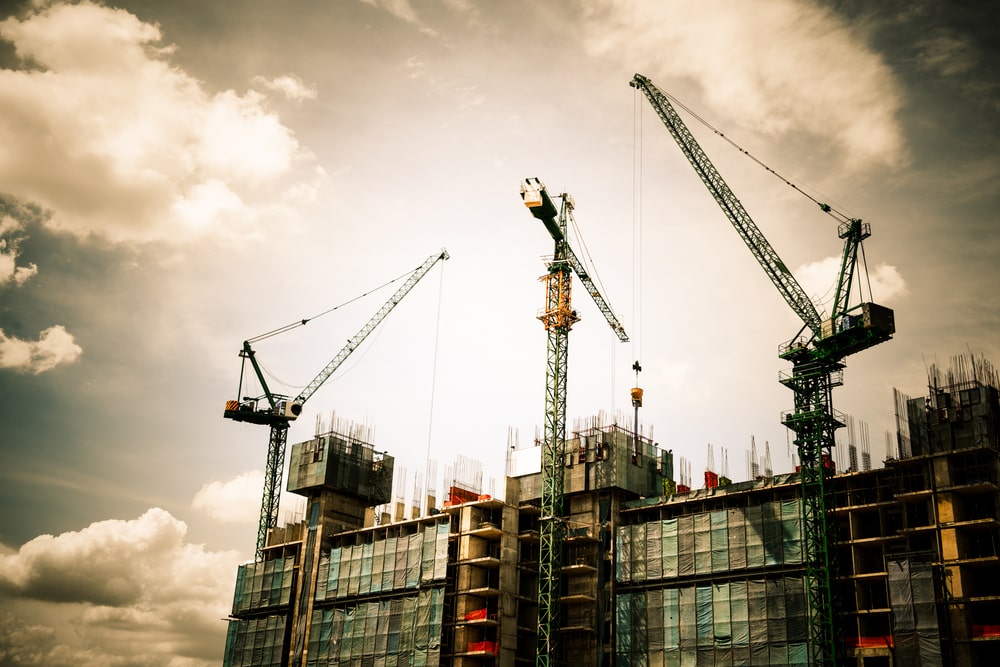News - Construction News
Summer slowdown for construction

Rising costs and economic pressure sees construction activity slow.
The latest PMI® data reveals construction activity in the UK suffered a slow down over summer with a second successive drop in August.
Customer demand has dropped amid cost pressures and economic uncertainty, putting pressure on the sector. While concerns about wider economic prospects led to a drop in business confidence and slower job creation.
Purchasing activity also declined which led to a release of pressure on supply chains, with lead times lengthening to the least extent in two-and-a-half years.
The S&P Global / CIPS UK Construction Purchasing Managers’ Index® (PMI®) was at 49.2 in August, up fractionally from 48.9 in July but still below the 50.0 no-change mark and thus signalling a reduction in construction activity over the month. Activity has now decreased in two consecutive months.
Civil engineering once again posted the sharpest decline in activity of the three monitored categories, with output falling sharply over the month. Commercial activity also declined, ending a period of growth stretching back for a year-and-a-half.
However, activity on housing projects increased for the first time in three months.
New orders increased only marginally in August, and to the least extent since June 2020. Some respondents indicated that customers were holding back on committing to new orders amid cost pressures. Alongside inflationary pressures, concerns around the potential for a wider economic downturn also impacted the sector in August.
Business confidence dropped in July and was well below the series average. In some cases, concerns around the wider economic environment impacted hiring decisions.
Andrew Harker, Economics Director at S&P Global Market Intelligence, which compiles the survey said: “The UK construction sector looks set to be in for a challenging period, according to the latest PMI data. Not only did construction activity fall for the second month running, but a range of indicators from the survey pointed to further weakness ahead. New orders slowed to a crawl, while concerns about the sector and the wider economy led to a drop in confidence.
“Activity weakness was broad-based in August, with none of the three monitored categories immune to the wider slowdown. Commercial activity dropped into contraction for the first time in just over a year-and-a-half, and while housing activity ticked higher, the segment has been in broad stagnation over the past three months.
“Price and supply pressures showed further signs of easing as waning demand throughout the sector lifted pressure on suppliers. Meanwhile, the main positive from the latest survey was a solid increase in employment. That said, hiring at least in part reflects an ongoing catch-up following the pandemic. If activity continues to fall, firms will likely soon feel that their staffing capacity is sufficient and pause hiring.”
Dr John Glen, Chief Economist at the Chartered Institute of Procurement & Supply, said: “The UK construction sector is poised for contraction once again as rising prices for raw materials worldwide filtered into UK supply chains. Just 14 months since the sector’s recent peak as part of the recovery from the pandemic, inflation is seeing housing and commercial building stagnate with civil engineering activity dropping significantly.
“There is some consolation for the sector as it readies itself for a future of high energy costs, however. Lower demand is leading to fewer purchases, downward pressure on input costs and more responsive supply chains. Together, these trends could eventually help to reverse inflation, but a prolonged dip in new orders will be a bitter pill for the sector to swallow.”
The fall in activity should be a wakeup call to the new Construction Minister that bold new policies are needed to help kickstart building activity to support economic growth, said Brian Berry, Chief Executive of the Federation of Master Builders (FMB).
He said: “This new construction data shows that the industry has returned to its pandemic levels of activity. As the cost-of-living crisis deepens, consumers are cutting back, but builders also face increased costs on materials. This creates a difficult and clearly damaging situation. Bold solutions are required by the new Government under Liz Truss. Delivering a UK wide retrofit strategy to improve the efficiency of the nation’s homes would be a huge boost for local builders and local economies alike. It would also cut homeowners bills and help ensure the UK’s energy security. More immediately we urge the Government to remove VAT on repair, maintenance and improvement work so that savings can be passed on to cash strapped consumers.”
If you would like to read more stories like this, then please click here
Related Articles
More News
- Reforms to Building Safety Regulator to accelerate housebuilding
15 Jul 25
Delays to building new high-rise homes will be unblocked through a new package of reforms
- New £39Bn Social and Affordable Homes Programme
14 Jul 25
Hundreds of thousands of social and affordable homes, including 60% for social rent.
- UK Introduces New Trade Measures to Support Steel Sector
11 Jul 25
Steel producers across the UK will benefit from stronger trade measures from 1 July.






